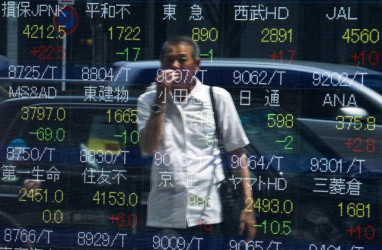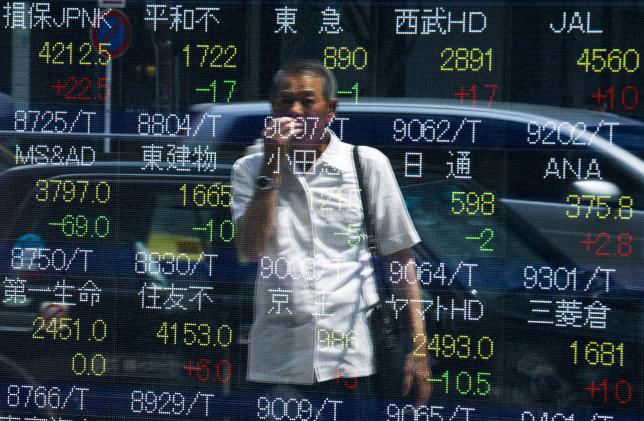SHANGHAI, (Reuters) – China shocked global markets yesterday by devaluing its currency after a run of poor economic data, a move it billed as a free-market reform but which some experts suspect could be the beginning of a longer-term slide in the exchange rate.

The devaluation was condemned by U.S. lawmakers from both parties as a grab for an unfair export advantage and could set the stage for testy talks when Chinese President Xi Jinping visits Washington next month given acrimony over issues ranging from cybersecurity to Beijing’s territorial ambitions.
China’s central bank set its official guidance rate down nearly 2 percent to 6.2298 yuan per dollar on Tuesday – its lowest point in almost three years – in what it said was a change in methodology to make the currency more responsive to market forces.
It was the biggest one-day fall since a massive devaluation in 1994 when China aligned its official and market rates.
The devaluation hit global equities and U.S. oil prices, with investors fearing a new currency war as well as declining Chinese economic momentum. The MSCI All World Index of global shares fell 1 percent.
A U.S. Treasury official warned China that any wavering in its commitment to a more market-determined exchange rate would be “troubling”, but added it was not clear if Beijing’s yuan devaluation marked such a step.
Senior U.S. lawmakers were more forthright.
“It’s time for the (Obama) administration to focus more intensively on China’s cheating and label the country a currency manipulator,” Demo-cratic Senator Bob Casey, a member of the Senate Finance Committee, said in a statement.
A cheaper yuan will help Chinese exports by making them less expensive on overseas markets.
The People’s Bank of China (PBOC) called the move a “one-off depreciation”.
“Since China’s trade in goods continues to post relatively large surpluses, the yuan’s real effective exchange rate is still relatively strong versus various global currencies, and is deviating from market expectations,” the central bank said.
“Therefore, it is necessary to further improve the yuan’s midpoint pricing to meet the needs of the market.”
FEAR OF A CURRENCY WAR
Economists disagreed over the significance of a devaluation that reversed a previous strong-yuan policy which had aimed to boost domestic consumption and outward investment.
“For a long time, I gave the PBOC credit for holding the line on the renminbi (yuan) and recognising that while it might be tempting to try to shore up the old-growth model by devaluing the currency, that really was a dead end,” said fund manager Patrick Chovanec of U.S.-based Silvercrest Asset Management.
The devaluation followed weekend data that showed China’s exports tumbled 8.3 percent in July, hit by weaker demand from Europe, the United States and Japan, and that producer prices were well into their fourth year of deflation.
The move hurt the Australian and New Zealand dollars and the Korean won, fanning talk of a round of currency devaluations from other major exporters. But some of Asia’s most interventionist central banks appeared to be holding their nerve on currency policy.

